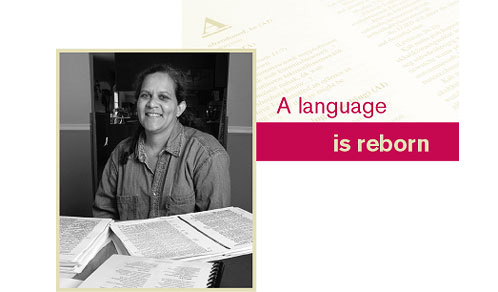|
|
||||
 The Wôpanâak language—common tongue of the Wampanoag Nation, a group of native American tribes that farmed and fished along the coastline of eastern Massachusetts in centuries gone by—was once a familiar sound on the banks of the Charles River. Weeyaqutumuwôk (wee-yah-kwuh-tuh-moo-wonk) The Wôpanâak Language Reclamation Project was founded in 1993 by the Wampanoag Nation, and takes advantage of an unusually large number of extant manuscripts in Wôpanâak (which translates as "People of the Dawn") to reconstruct the grammar, pronunciation, and vocabulary of the language. The texts include a 1663 translation of the Bible by John Eliot—the first complete Bible in any language published in the Western hemisphere—and a number of legal documents written by native speakers. The project also studies similarities with better known languages in the Algonquian family. For example, Wôpanâak (like other Algonquian languages) is based on words constructed from lots of smaller parts: wÔk, the ending of the word above, is a common suffix that forms nouns from verbs. |
||||